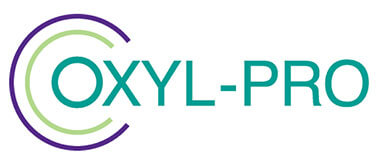There are various common water treatment products available, including water purification tablets.
But how effective are water purification tablets, and is there an alternative?
What is the Water Treatment Process?
Drinking water requires decontamination to make it safe for consumption. The water treatment process can involve various stages:
- Coagulation and flocculation – adding chemicals with a positive charge is often the first stage, as this then neutralises the negative charge of dirt and dissolved particles
- Sedimentation – floc, the result of smaller particles binding together to form larger particles, falls to the bottom of the water supply and settles
- Filtration – the clear water left on top of the supply passes through various filters and pore sizes to remove dissolved particles, including bacteria, parasites and chemicals
- Disinfection – after filtering, there may then be an additional disinfection process, adding a chemical such as chlorine to kill any remaining parasites and protect the water for when it is pumped to domestic and commercial users.
What are the Common Water Treatment Products?
Common water treatment products include a range of different water filters, water purification tablets, and various chemical water treatments.
Some of these methods, for example chemical treatments, apply at various stages of the water supply process. There are also chemical treatments designed for adding to drinking water as portable water treatment products.
Other methods, such as filters and tablets, also have domestic water treatment applications.
Water Treatment Chemicals
There are various chemicals involved in water treatment, including:
- Algaecides
- Disinfectants and biocides
- Oxidants
- Oxygen scavengers
- Flocculants
- Neutralising agents
- pH conditioners
- Scale inhibitors
- Corrosion inhibitors
- Coagulants
- Antifoams.
Many of methods can risk polluting the environment, however, which has led to further chemicals being used for purification purposes.
Water Filters
There are various forms of water filter treatments, including:
- Activated carbon filters
- Reverse osmosis filtration
- Ultraviolet radiation (UV).
Activated carbon filters filter water through a process known as adsorption. Water passes through a carbon filter, which traps harmful molecules. This filtration method is effective for removing pesticides, VOCs and other contaminants.
Reverse osmosis filtration involves passing water through a semi-permeable membrane, filtering out anything smaller than water molecules. This method can prevent certain bacteria and pathogens entering the water supply, but it may also filter out beneficial minerals due to its high level of filtration.
UV filters tend to apply in situations where water is judged unreliable, such as private water wells. Ultraviolet radiation kills bacteria and viruses, but because it is not a physical filtration method, it cannot exclude solids, such as suspended particles.
What are Home Water Treatments?
Many people also opt for home water treatments, to take extra precautions with their domestic water supply, or to remove specific contaminants.
These home water treatments are in two broad categories:
- Point of entry, and
- Point of use.
A point of entry treatment will, typically, treat water as it enters the home’s water supply. Point of use systems will treat water in batches, delivering it to a tap or sink.
Broadly, home water treatments include:
- Filtration systems
- Distillation systems
- Water softeners
- Disinfectants.
Water purification tablets are a point of use method, in that you add them to a water supply, to kill any pathogens before you drink the water. This can also apply to water you take with you, for example, backpackers and outdoor enthusiasts use water treatment tablets.
But how do water purification tablets work, and are they effective?
How Do Water Treatment Tablets Work?
You add water purification tablets to a water supply to kill any pathogens and disinfect the water. They are a fast means of disinfecting otherwise potentially contaminated water supplies.
Typical uses include decontaminating river or lake water if you are backpacking and in need of water supplies, or in emergency situations where there has been a natural disaster and normal water supplies are unavailable.
Tablets are a common form of delivering water-purifying chemicals to a water supply. They vary in how long their effects last, and how long it takes them to fully dissolve to be effective.
Water treatment tablets normally contain chlorine, chlorine dioxide or iodine, as active ingredients.
These chemicals will destroy harmful pathogens in the water supply when the tablet dissolves, but the extent of their effectiveness depends on the concentration of the active chemical in the tablet.
How Effective are Water Purification Tablets?
Water purification tablets can kill pathogens, but will not rid water supplies of harmful pesticides.
They are generally safe, but inappropriate use can lead to irritation of the mouth and throat, and can cause stomach problems. Some water treatment tablets can leave behind an unpleasant taste unless some sort of neutraliser accompanies them.
These tablets require no special equipment to administer, and they are often used as a backup source of water purification in the event of other equipment failing.
However, they will not remove sediment or chemical pollutants from water supplies, and, depending on the chemicals they contain, they can be less effective against certain types of microorganisms, such as protozoans.
What is the Alternative?
Whereas water treatment tablets offer a convenient, portable means to purify water, there is an alternative.
Oxyl-Pro Clean is a uniquely formulated disinfectant that uses aseptic hydrogen peroxide as its base product.
Adding it to a water supply will quickly kill all bacteria, including legionella, listeria and pseudomonas. It has no colour, odour or taste and is completely safe to add to drinking water.
For more information about Oxyl-Pro, please complete our contact form, call us on +44 1606 851 782, or email enquiries@oxylpro.com
